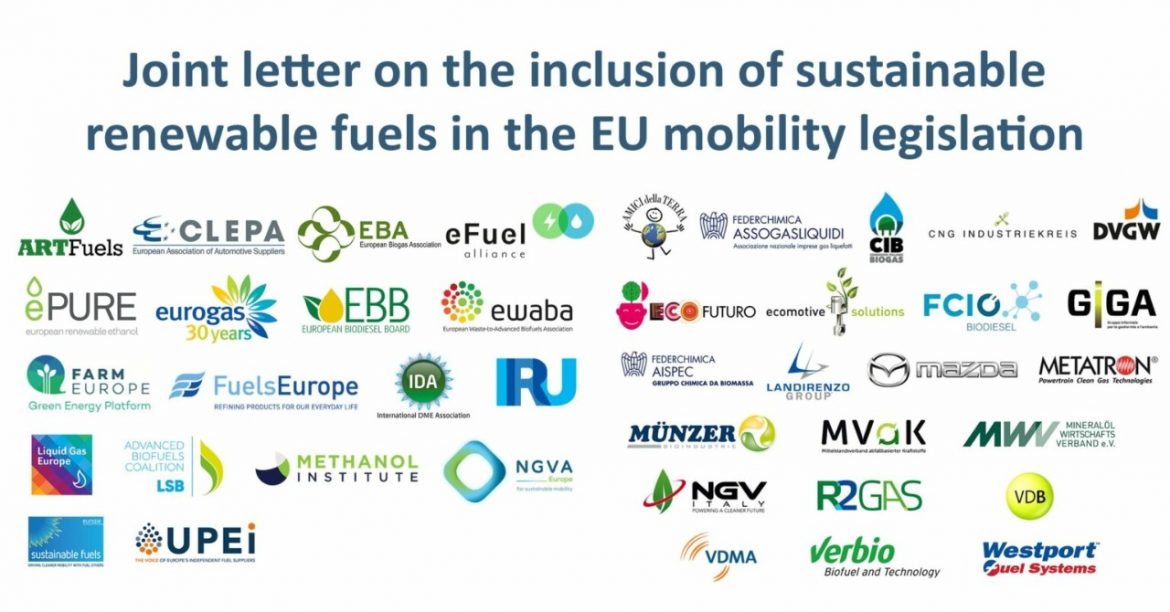Over the past few months I have shared on this blog my vision of developing a green fuel. With joy, I am realizing that much of what I have planted on the advantages of advanced biofuels is beginning to be recognized in concrete measures around the world.
An important demonstration by the automotive suppliers sector took place in Europe on November 30, 2020 and echoes what we have advocated for a long time. CLEPA (the French acronym for the Committee of Liaison Européen des Fabricants d’Equipements et de Pièces Automobiles, which represents European automotive suppliers), together with 38 associations and companies, signed a letter calling on the European Commission to include biofuels in the European Union (EU) mobility legislation.
The region has been experiencing an effervescent discussion about changing the energy matrix. The theme of electric vehicles gained great strength during the pandemic and ended up being valued as the main path towards the goal of zero carbon by 2050 (read more in The solution of advanced biofuels as opposed to the use of electric cars).
The event is very representative because it formally puts on the agenda an effective assessment of the use of biofuels in this phase of transition to a cleaner matrix. The charter’s signatories represent a crucial part of the automotive, fuel, energy and civil society industries in Europe. They are key players in the process of transforming EU mobility in the pursuit of climate neutrality in an intelligent and sustainable way.
The context of this process is against the background of the fact that the EU has set itself the ambitious goal of becoming climate neutral by 2050 and, consequently, has increased its climate target for 2030.
In the letter, the signatories stress that “the EU’s long-term climate strategy cannot depend solely on the development of new technologies and infrastructure; should embrace a diverse portfolio of parallel solutions, including sustainable renewable liquid and gaseous fuel solutions that can reduce greenhouse gases starting today (read more in Hybrid vehicles using biofuels are the best solution for passenger transport) .
This is a strategic milestone to be celebrated and timely because it was published at a time when the European Commission will outline the Sustainable and Intelligent Mobility Strategy and review important legislation on mobility and energy, such as CO2 emission standards for cars and also vehicles heavy.
The discussion starts to consider biofuels in this process.
I highlight here some important principles that the document lists:
- Considering the lack of a “single solution for all”, it is imperative that all low carbon options, including alternative and renewable fuels, play a role in the energy transition;
- Despite gains in fuel efficiency, the increased demand for personal mobility and cargo transport has led to an increase in CO2 emissions from road transport. It is necessary to leverage all available solutions to reverse this trend and accelerate the decarbonization of the sector;
- The acceleration of the production of renewable and sustainable fuels, accompanied by the continuous development of a range of new vehicles optimized for these fuels, can have a positive impact on the climate today through the existing and future vehicle fleet, both for passenger cars as for heavy vehicles;
- Many publications have shown that relying on total electrification alone will not result in climate neutrality in 2050. Products and solutions need to be placed according to the profile of their mission, where they are most needed and adaptable to what the market requires;
- Biofuel technologies offer sectoral integration with waste management and the agricultural sectors. This allows for a smart approach to treat waste;
- Biofuels are the most economical way to contribute to the decarbonization process at the lowest possible cost to society. In addition to the cost of reducing emissions, it is important to consider the impact on industrial competitiveness, innovation, affordability and employment to ensure a fair transition for all European citizens.
CLEPA is the voice of European automotive suppliers, representing more than 3,000 companies that employ 5,000,000 employees, investing more than 30 billion euros annually in Research and Innovation and providing solutions for safe, smart and sustainable mobility.
It is good that this voice was raised to include advanced biofuels on the agenda for the issue of mobility in Europe, a flag that has been ours on this blog since its launch. It is an advance, without a doubt, and one that is very welcome.


2 comment
A participação da CLEPA, representada pelos mais de 3.000 empresas de fornecedores Automotivos Europeus, é um grande passo para a exigente necessidade do uso do combustível verde, visando a descarbonização na Comunidade Européia e, exemplo ao restante do Mundo para adoção desta prática sustentável.
Celebramos la perseverancia en el desarrollo y la implementacion de tan noble emprendimiento.Su contribucion sera una sensible contribucion a la salud y bienestar de todos.